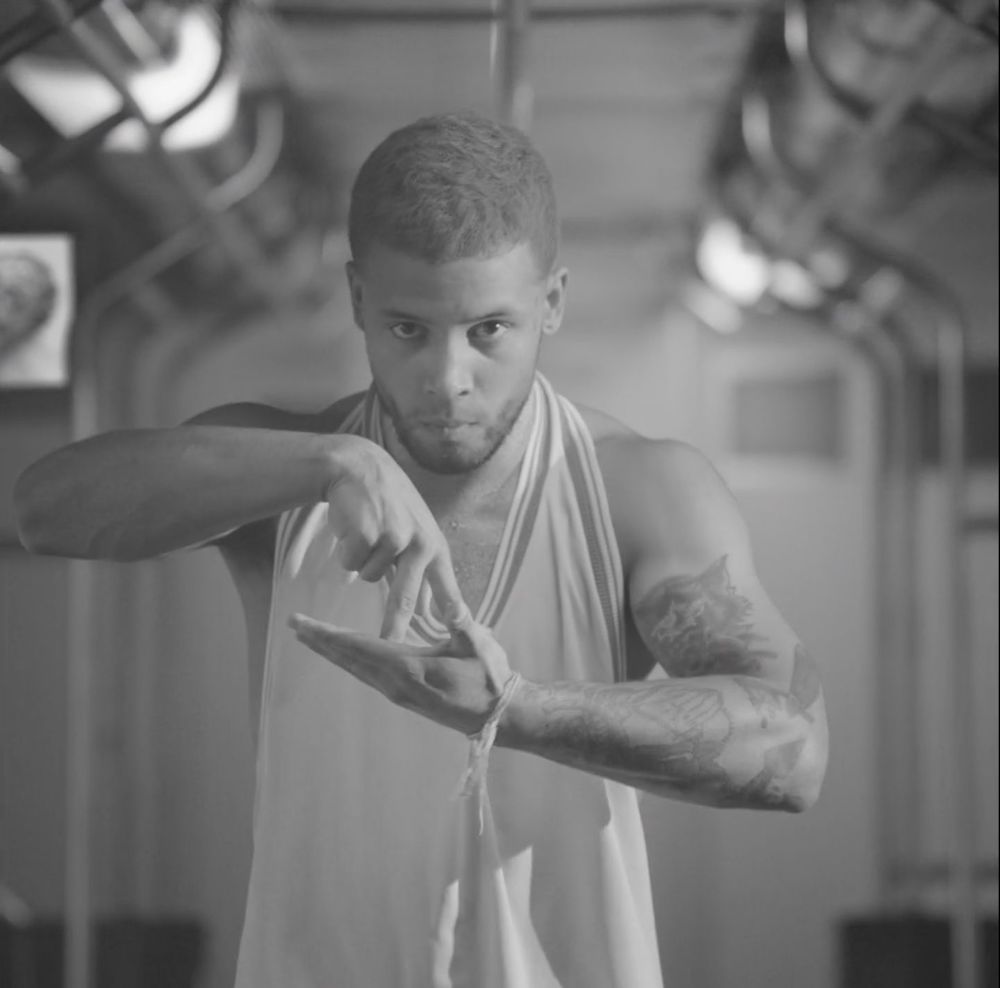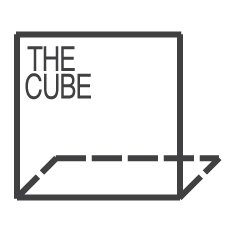
Luiz Roque
S, 2017, HD video, 5 min.
Courtesy Mendes Wood DM and the artist
TheCube 7F

Luiz Roque employs the vagueness of the present to arouse our imagination about the future, using science fiction as a tool to question dominant understandings of the world. S is set in an unspecified location made out of nocturnal, underground train carriages and tunnels, where androgynous figures adorned in shiny clothing, jewelry, and makeup appear with a gleaming rotating sculpture, an appropriation of Brazilian neo-concrete sculptor Franz Weissmann’s Cubo Vazado (1951). While the figure in the train quotes in sign language a text by Brazilian artist and activist Jota Mombaça titled Towards a gendered anticolonial disobedient redistribution of violence (2016), the movements in the tunnels combine break dance with voguing. Both instances, sign language and dance, become clear instances of the body as a site and tool for action and thought.
The black-and-white images add to the defused temporal nature of the work in parallel to the bodies and sculpture moving in an erotic ritualistic choreography that blurs combat and seduction, echoing broader power dynamics and embodies social tensions. In this collapse of perceived opposites, seen through imagery, actions, and references, Roque’s interest in queerness as an emancipated state of fluidity shapes the work’s open-ended narrative as much as its content and form. In a context of growing extremism and isolation, grounded in binary structures of world making historically enacting myriad forms of violence, which today manifest in the generalized state of ecological, economic, health, humanitarian, and political crisis, the nuanced qualities of S, are urgent, celebratory, and sensual statements about other more mysterious ways of being, forcefully reclaiming utopia as a tool of social reformulation.
- Curator | João Laia
Luiz Roque
(b. 1979, Cachoeira do Sul, Brazil; based in São Paulo) Attracted by the power of image and, in particular, by sensations that stem from the sense of vision, his work crosses different territories, such as the genre of science fiction, the legacy of Modernism, pop-culture and queer bio-politics, in order to understand the propose ingenious and visually sensual narratives. The plasticity of the allegories he uses in his films takes us through the current conflict between technological advancement and contemporary micro and macro power relations.
Roque’s works inhabit a space between cinema, art and critical theory; all within the scope of political dispute that is both real and imaginary. Furthermore, his works comment on the dissociative conditions of being: between the latency of life and respective bureaucratic definitions. In this sense, his works combine the splendor of science fiction—as a device for the dissemination of hypotheses—with resources from the language of cinema in order to present us with scenarios of social tension and complex public debates.
Curator : João Laia
João Laia is the chief curator for exhibitions at Kiasma – National Museum of Contemporary Art, Helsinki. Recent projects include Masks (2020) at Oporto City Hall Gallery; In Free Fall (2019), CaixaForum, Barcelona; Vanishing Point (2019) at Cordoaria Nacional, Lisbon; Drowning in a sea of Data (2019) at La Casa Encendida, Madrid; foreign bodies (2018) at P420, Bologna. Laia co-curated the 19th and 20th editions of Videobrasil (2014–18) in São Paulo. Other exhibitions, performance programs and screenings were held at Parque Lage (Rio de Janeiro) Moderna Museet (Stockholm), Xcèntric / CCCB (Barcelona), Videoex (Zürich), Calouste Gulben, Kurzfilmtage – International Short Film Festival Oberhausen and Cell Project Space, DRAF – David Roberts Art Foundation, Delfina Foundation, South London Gallery and Whitechapel Gallery (all in London). He edited and published in magazines such as Flash Art, frieze, Mousse, Spike, and Terremoto. In 2021 together with Valentinas Klimašauskas, Laia curated the 14th edition of the Baltic Triennial at the CAC – Contemporary Art Center in Vilnius.


